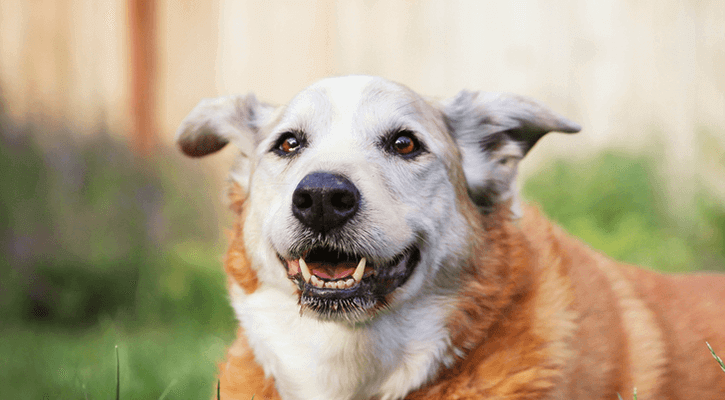
Senior Wellness
With advances in medicine and quality of life, dogs and cats are living longer than ever. Watching your beloved pet transition to this stage of life can be difficult. But you’re not on your own: our team is here to empower you with the knowledge to make the best decisions for your pet’s care as he or she enjoys their golden years.
Annual Visit
The annual visit is important for pets at every age, but they are imperative for senior animals. Age is not a disease, but because our pets age at a faster pace than we do regular vet visits can identify and prevent problems before they worsen. By bringing your senior pet in at least once a year, your veterinarian can perform a full physical examination to catch problems before they worsen and to ensure your pet’s overall health. We perform labwork to make sure everything is functioning properly internally and start your pet on any treatments needed to address any issues that have arisen due to the aging process, including:
- Nutrition: As our dogs and cats age, their dietary needs change as well. Are they eating more or less? Gaining or losing weight? Dietary and weight changes can be caused by a wide array of factors. Keep track of your senior pet’s eating habits and weight fluctuations and alert your veterinarian to any changes.
- Mobility: Is your senior dog or cat not getting around as well as they used to? Changes in activity level are one of the most common problems for senior pets, but that doesn’t mean they have to live with the pain. Your pet’s veterinarian can determine the cause and put together a treatment plan that helps them get moving again.
- Cognitive and Behavioral Changes: Just like people, the aging process can cause “senior moments.” Senior pets may begin having moments of anxiety or confusion, forgetting their housetraining, having accidents in he home, or sleep disturbances. Some of these issues may be the result of an underlying medical condition. Diagnostics will be performed to rule out those causes before addressing them on a behavioral level.

CARING FOR SENIOR DOGS
As your dog ages, many of his basic needs, from diet to exercise, will begin to change. This guide will help you understand what it takes to keep your senior dog happy and healthy.

HOW TO CARE FOR YOUR SENIOR CAT
As your cat reaches old age, her health, nutrition, and exercise needs change, requiring adapted routines and more frequent checkups.

SENIOR DOG COGNITIVE DYSFUNCTION
Confusion, disorientation, dogzheimers. Call it what you will, but canine dementia (known clinically as canine cognitive dysfunction) can be a serious problem.

SENIOR FELINE COGNITIVE DYSFUNCTION
Have you noticed your super-senior cat going through some personality and behavior changes?
To make a wellness appointment for your senior pet, call us at 803-732-3883.
